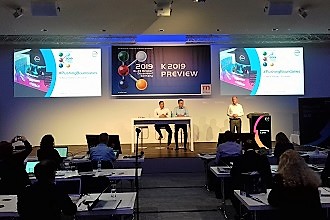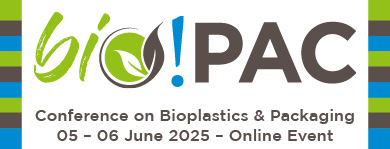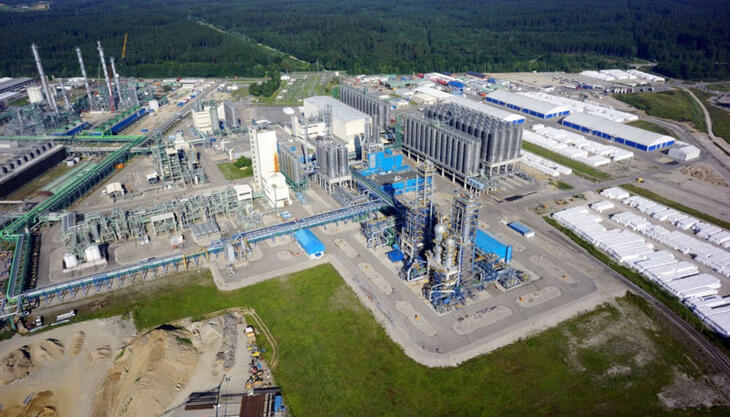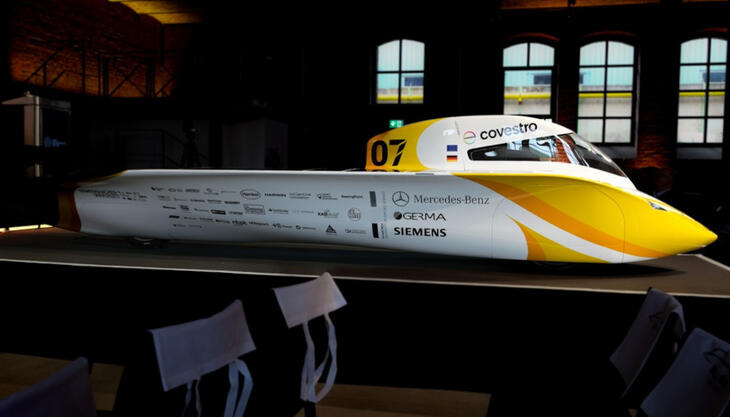Pushing the boundaries for a sustainable and digital world

Sustainable and digital: at the plastics trade fair K 2019 in Düsseldorf, materials manufacturer Covestro presents innovative material solutions that provide answers to the great challenges of the world. In doing so, the company continually pushes boundaries, in order to improve people’s lives and generate added value for customers, but also, above all, to reduce environmental influences.
Visitors to the world’s premier fair for the plastics and rubber industry will find many examples of this presented by Covestro. From October 16-23, 2019, products and technologies for the automotive, construction and electronics industries will be on display, but also innovative and functional applications in the health, furniture, sports and leisure sectors.
“In addition to the advancing digitalization, the United Nations Sustainable Development Goals will be a driving force in society and the economy for the coming years”, said CEO Markus Steilemann. “Their fulfillment is not only imperative for a better, cleaner and healthier world, but also holds great economic potential in the long term”, explained the CEO. “Covestro is determined to realize the UN sustainability goals at many levels”.
Industry pioneer
Steilemann named the development of a functioning circular economy and improved management of limited fossil resources, primarily crude oil, as central points for increased sustainability. “These are goals that will impact society as a whole and Covestro wants to contribute to this. Within our company, we want to establish material cycles along the entire value chain, from suppliers, to production and logistics, to the use of our products and their reuse”, explained Steilemann.
When recycling used plastics, it will be important to be able to exhaust all technical possibilities. “The relatively new method of chemical recycling is also an option, which requires additional support”, said the CEO.
A key aspect for developing a circular economy in the plastics and chemical industry is closing the carbon cycle with recycled resources. Here, plant waste and increasingly carbon dioxide are worth considering as alternatives to fossil resources. Covestro has already achieved numerous successes in these areas. “We want to become a pioneer on the path toward a future without fossil-based resources and emphasize our claim to leadership in the industry”, stressed Steilemann.
Digitalization creates added value
Another driving force is the advancing digitalization. Covestro wants to take advantage of the resulting opportunities and has started a comprehensive program, which focuses on the customer. To accomplish this, the company is incorporating digital technologies and processes into production, the supply chain, research and development, at all customer contact points and in new business model development. Various topics and exhibits at K 2019 underline how important digitalization is for the company, which hopes to set standards in this field in the plastics and chemical industry.
The examples below give an impression of the wide range of developments that Covestro will present at K 2019.
 Completely networked society
Completely networked society
One important requirement for future mobility and the digitalization of all areas of life and business is the new transmission technology 5G. To build the infrastructure for it, Covestro is working together with Deutsche Telekom and the Umeå Institute of Design to develop innovative material solutions for base stations, antennas and other system components. Covestro is also working on a multi-layered film solution in conjunction with a new manufacturing process for the backs of smartphone bodies. Unlike conventional metal elements, these polycarbonate films are permeable to high-frequency radiation.
Auto interior of the future
The highlight of the trade show exhibit is a comprehensive interior concept for future mobility. In line with the latest trend, it intends to turn car interiors into multi-functional, mobile living and working spaces. “We developed the concept together with key industrial and academic partners”, explained Jochen Hardt, marketing expert at Covestro and head of the project. “It involves functionality, comfort and design in equal measure, as well as efficiency”. The car of the future is fully networked and is seamlessly integrated into everyday life. Key design features are surfaces with a decorative look and feel, integrated ambient lighting, the latest infotainment systems and cutting-edge seating concepts.
Textiles with carbon dioxide
Together with partners such as RWTH Aachen University and various textile manufacturers, Covestro succeeded in producing elastic textile fibers from thermoplastic polyurethane with carbon dioxide, and as a result partially replaced crude oil as the raw material. The starting point is an intermediate product called cardyon, which is already used for the soft foam found in mattresses and the base layers of sports fields. The partners are currently working on developing production to industrial scale and want to introduce a material cycle that is based on sustainable resources to the textile and garment industry.
Renewable energies on the rise
In addition to promoting an efficient circular economy, Covestro is also committed to further expanding renewable energies, such as wind power. Cooperation with partners has led to the development of a polyurethane resin as well as a process technology, which makes it possible to manufacture wind turbine rotor blades efficiently and cost-effectively. The company just recently processed its first commercial order for this from China.
















